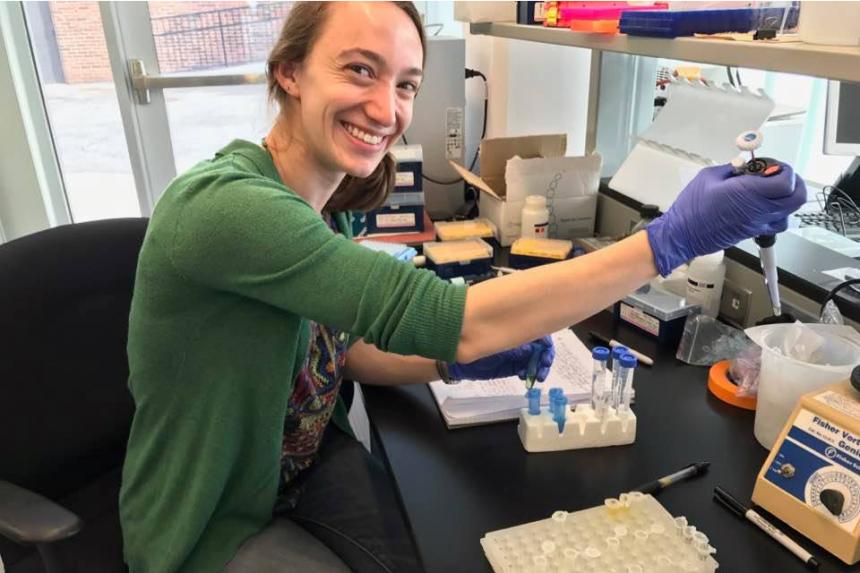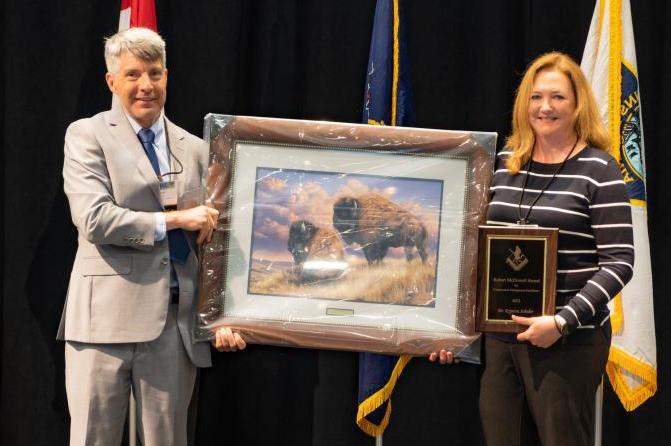News

News
June 05, 2023
Dr. Alyssa Kaganer began working with wildlife as an undergraduate student at Cornell University in 2012. She recalls “stumbling” into research at the Cornell Wildlife Health Lab, where she was mentored by Drs. Krysten Schuler and Elizabeth Bunting.

May 28, 2023
Cornell disease ecologist Dr. Raina Plowright has spent a decade studying how Hendra virus spills over from bats to horses and potentially people.

May 24, 2023
Our Wild Carnivore Health Specialist Dr. Martin Gilbert was awarded a seed grant from the Mario Einaudi Center for International Studies to tackle issues related to the health of endangered wild dogs (dholes).

May 23, 2023
Humanity doesn't have to halt development to avoid pandemic risk, but scientists say a lot needs to change, including recognizing the risk around bat habitats and better assessing dangers related to development in bat lands.

May 18, 2023
The Cornell Wildlife Health Center partnered with the student-led Cornell Zoo and Wildlife Society to host Dr. Gladys Kalema-Zikusoka, founder of Conservation Through Public Health, as a special speaker at Cornell University.

May 17, 2023
Congratulations to Cornell's Dr. Krysten Schuler, who received the highest honor from the Northeast Association of Fish and Wildlife Agencies—The Robert McDowell Award for Conservation Management Excellence.

May 16, 2023
First it jumped from bats to pigs. Then pigs gave it to people. Now the brain-damaging Nipah virus has found a way to leap from bats to humans without an intermediary host.

May 09, 2023
The cross-disciplinary Cornell Global Grand Challenge explores how, and why, Earth’s beings are always on the move. This includes research by Dr. Steve Osofsky, DVM ’89, who has long studied the effects of fences on migratory elephants and other wildlife in southern Africa.

May 04, 2023
In the past century, the global tiger population has dwindled from over 100,000 to between 3,726 and 5,578 animals. In this literature review led by Cornell, researchers suggest disease surveillance is increasingly important as tiger populations decline and become more vulnerable to disease outbreaks.

May 01, 2023
Kristina Ceres' extensive research, from cattle with tuberculosis to the critically endangered great hammerhead shark, led the Wildlife Disease Association to select Ceres for a Graduate Student Scholarship Award, which recognizes outstanding academic accomplishment and future potential in wildlife research.
